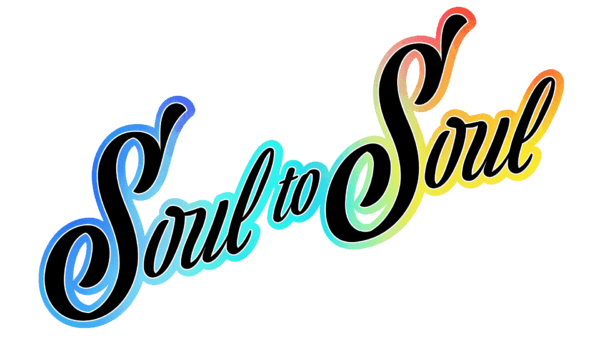
An electrifying virtual concert rebroadcasts on Martin Luther King Jr. Day Weekend to celebrate the music and shared experiences of the African American and Jewish communities.
It is in lyrics and music that we deepen connections and celebrate differences.
An emotionally captivating theatrical concert featuring a mix of Spiritual, Jazz, Klezmer, and Folk. African American and Jewish Music Meet in Celebration of Two Cultures.
Now in its eleventh year, this audience favorite plays annually to sold out houses in New York, and has performed across the country (Los Angeles, Boca Raton, Denver, Baltimore, Chattanooga) and internationally (Bucharest, Toronto, Montreal, Winnipeg). The annual concert, a combination of spirituals in English, civil rights songs, Yiddish folk songs, and theatre songs, will see it’s 2021 online version rebroadcast online as a special encore presentation on Sunday, January 16 through Monday, January 17. All Yiddish songs will include English translation subtitles.
ENCORE
PRESENTATION
January 16 & 17, 2022
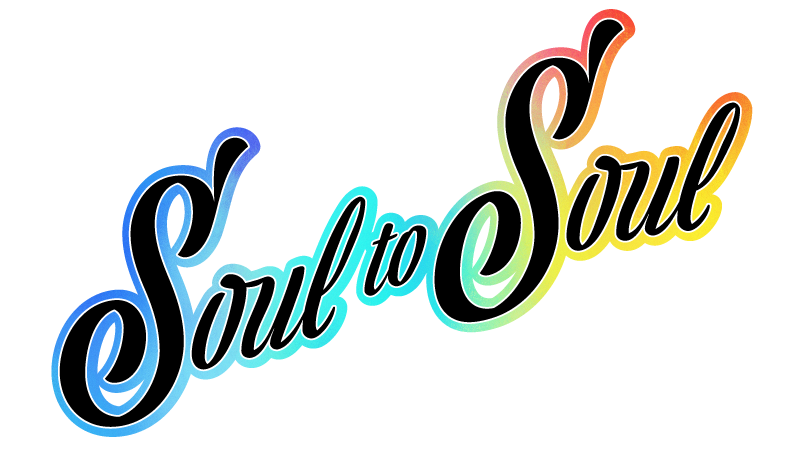
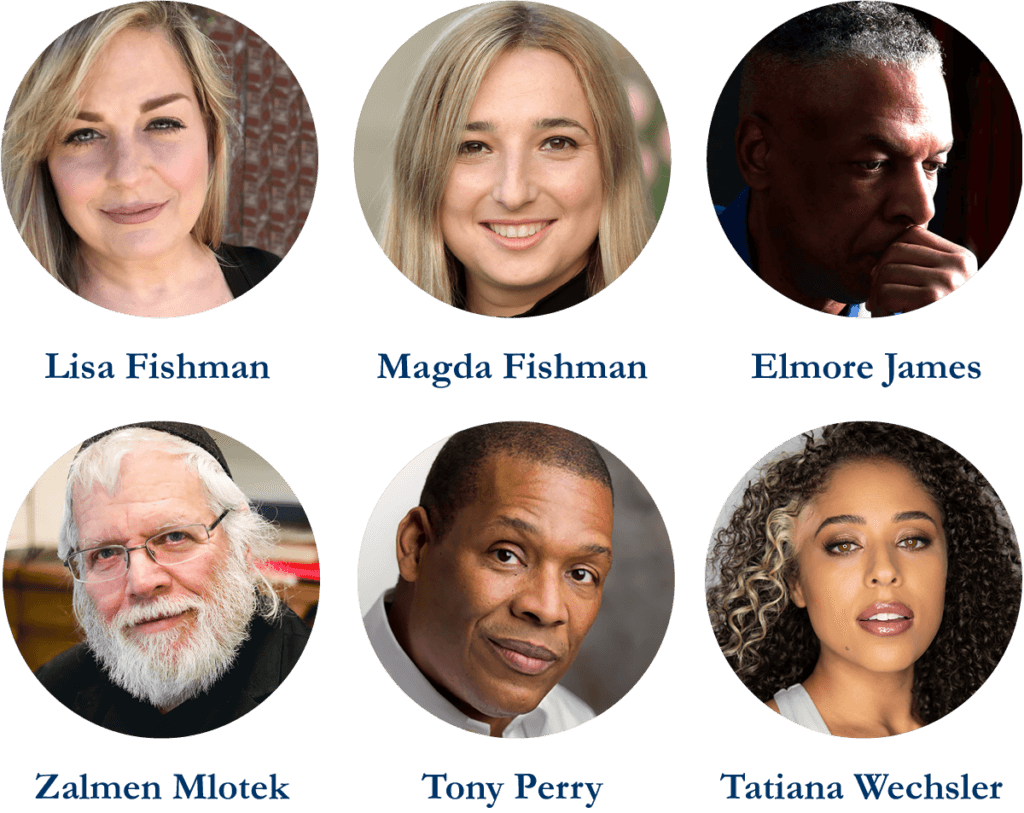

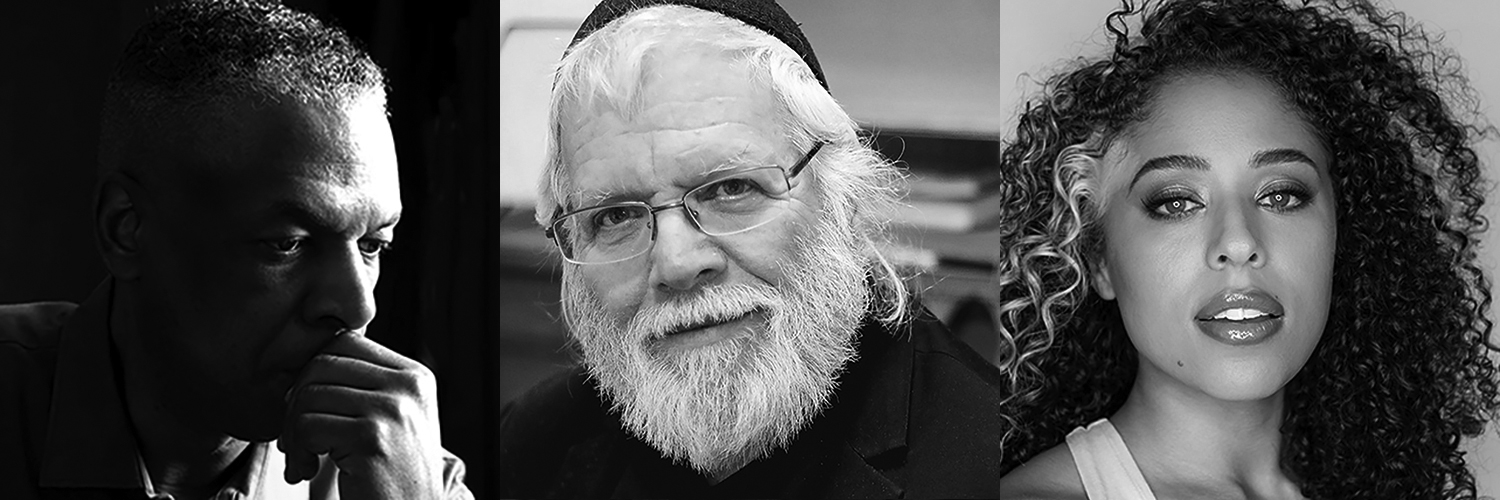
Elmore James, Zalmen Mlotek, Tatiana Wechsler
This episode is all about NYTF’s annual concert tradition: Soul to Soul. The electrifying and emotionally captivating theatrical concert that explores the parallels of African American and Jewish history takes to our virtual stage this Martin Luther King, Jr. Day.
We interview NYTF Artistic Director Zalmen Mlotek and singer Elmore James. We discuss how the two artists first met, their relationship to Yiddish and African Music, and learn about how the first Soul to Soul concert came to fruition.
Then, we talk to Soul to Soul director/producer Tatiana Wechsler about the process of making Soul to Soul virtually, growing up in an African and Jewish household, her performing influences, and her time performing with NYTF in The Golden Bride.
During the darkest days, we sing. When light shines upon us, we sing. While seeking justice and answers, we sing. This musical tradition is one shared among African Americans and Jews for centuries. It is in the music of Soul to Soul, National Yiddish Theatre Folksbiene’s annual Martin Luther King, Jr. Day commemoration concert, that we find and give voice to our common experiences: a history of oppression, struggles for justice, finding humor in pain, passion for faith, and joy in community.
To Tony Perry, one of its four veteran performers, “Soul to Soul is an expression of how souls can speak to one another on a deeper level—what separates us is what society highlights, but underneath that are our commonalities.”
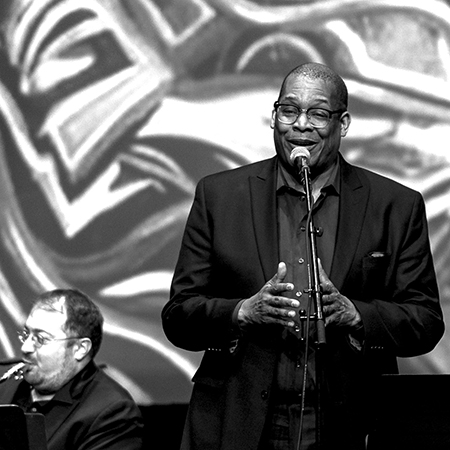
Soul to Soul—which we present virtually for the first time on Monday, January 18—takes audiences on a life-affirming journey from deep oppression to hope, employing centuries of musical traditions of Ashkenazi Jews and African Americans. In the lyrics and music, we deepen connections and celebrate differences.
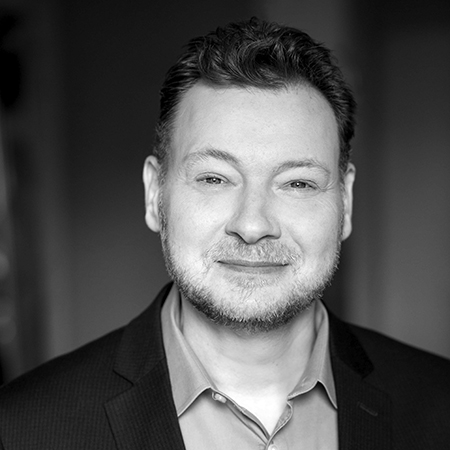
“It’s an emotionally charged exploration of each community’s joyful, optimistic hopes for the future and the deep mourning for suffering they’ve faced; and interspersed is humor, which is often the only mechanism people have to stand up to their oppressors,” says Motl Didner, Assistant Artistic Director at the National Yiddish Theatre Folksbiene.
This year’s demonstrations in support of Black lives reminded many of us that our work is far from over. We recall the Civil Rights movement and alliances that Jews and African Americans formed amid calls for justice, and we know the fight must continue until we are all free of the racism and anti-Semitism that threaten to destroy us. The music featured in the upcoming virtual Soul to Soul, as you will discover below, illustrates how each of our peoples has endured physical and emotional pain and struggle and achieved triumph through adversity.
Enslaved Africans brought to America against their will learned biblical stories when they were converted to Christianity. They connected with the book of Exodus, and the promise of deliverance from slavery is echoed in uplifting and heartfelt spirituals like Go Down Moses—which many Jews today sing during Passover—and Didn’t My Lord Deliver Daniel.
These songs and their themes of freedom and overcoming struggle continued to resonate through the Civil Rights movement, when Jews—who joined voter drives, protests, and lawsuits in support of African Americans—envisaged their own people’s struggles toward freedom.
“Doing the show has made it clear to me why there was so much Jewish participation in the Civil Rights movement,” Perry says. “The Holocaust had just happened. Of course, they understood!”
The poem-turned-song, Es Brent (It Is Burning), written by Mordecai Gebirtig about a pogrom in Poland, challenges witnesses to act, to protect and defend a town and its inhabitants. Soul to Soul veteran performer Elmore James, whose resonant bass reinforces the seriousness of the song, says, “There’s a parallel history with the pogroms of Russia and Eastern Europe and the massacres of thriving Black communities in America.”
In the Greenwood District of Tulsa, known as Black Wall Street, residents suffered a land and air assault by white civilians. Dozens were killed, thousands displaced, and the community suffered millions of dollars in damages without redress. Soon after, a white mob attacked Black people in their homes and burned churches, buildings, and occupied houses in the all-Black town of Rosewood.
“In high school, my best friend’s parents were Auschwitz survivors,” Elmore James says. “I used to sit with his father, and he’d tell stories of the pogroms. I think of them and of the Black people who went through the massacres. I hold all of them when I sing this song. It moves me because it really moves the audience. We are in this together—in history and in the moment.”
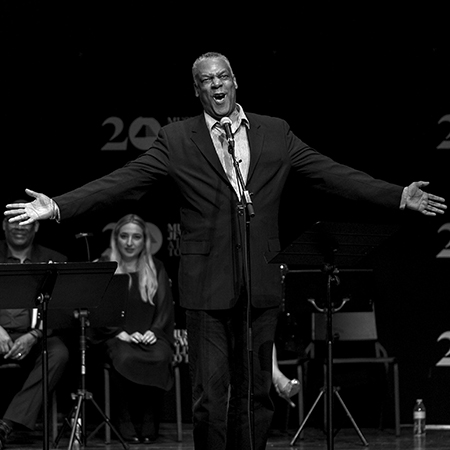
Many American Jews can trace their family’s arrival to the decades before World War I. These Jews were escaping anti-Semitism, pogroms, and poverty in search of safety and financial security in the United States. Their dreams were not unlike those of African Americans during the Great Migration, which began in 1916 with individuals and families moving from southern states—where they experienced racism, state-sponsored violence, poverty, and terror—to northern states for the same security sought by immigrant Jews.
These parallel experiences are explored in New Colossus and Ellis Island, a Yiddish song that highlights why Jews left their homelands and the rejection they encountered upon arriving here.
Singer, songwriter, and producer Sam Cooke began his musical career in gospel, but crossed over to mainstream pop with tunes like You Send Me and Twistin’ the Night Away. While he may be best known among white audiences for these musical hits, he also incorporated gospel in concerts, ensuring that all his fans would hear the music of his heart. Later in his career, he chose to risk losing his largely white fan base by composing A Change Is Gonna Come, expressing his experience with racism. Soon after he performed it only once, on The Tonight Show Starring Johnny Carson, he was killed and never saw the song grow into the Civil Rights anthem it has since become.
Perry says, “He paved the way for more commercially successfully Black musicians—like the Temptations and Marvin Gaye—to create protest music and use their platforms to express their experiences of being Black in America. If Cooke hadn’t done that, it would have taken longer until there would be more open and honest music.”
Martin Luther King, Jr. once said, “Now is the time for men and women to cast aside their prejudices. It’s time to look and really see; listen and really hear; talk and have something important to say.” That is what Soul to Soul does, by giving people of all faiths, creeds, colors, and religions an opportunity to come together and better understand our common experiences.
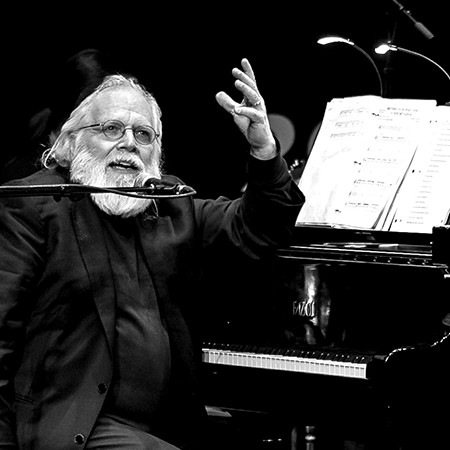
“The songs show the parallels between African American history and Jewish history and remind us that, while the world may try to tear us apart, we are more alike than we are different. We share the same hopes and desires,” says Zalmen Mlotek, Artistic Director at the National Yiddish Theatre Folksbiene. “Though imbued with songs that illustrate a difficult history, Soul to Soul is actually wonderfully uplifting and joyous. As we endeavor to bring the show online this year, we hope to reach a larger, more diverse audience to connect with the soul-lifting, energizing, joyful, and electric performances.”
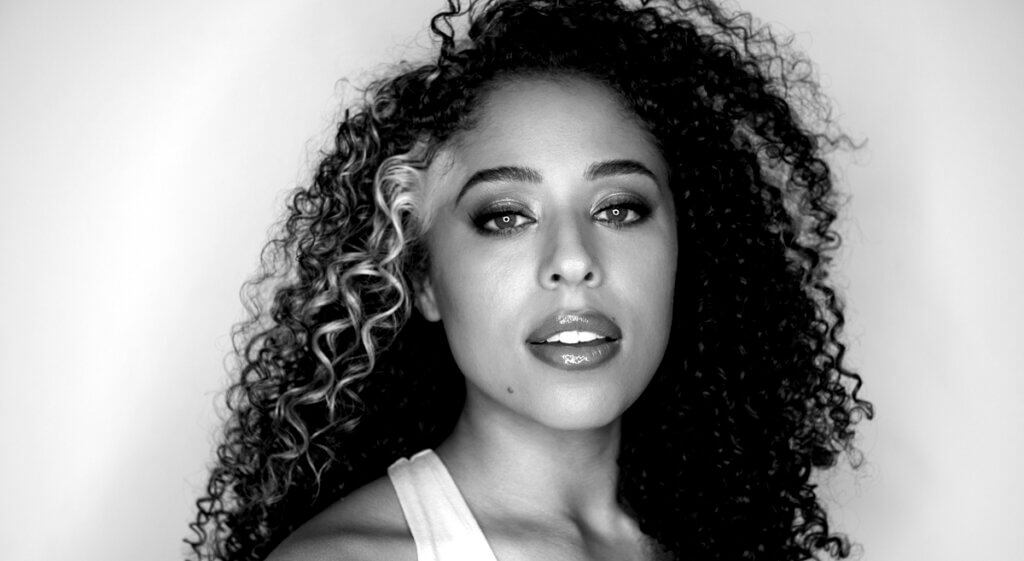
Tatiana Wechsler: Showing Heart and “Soul”
The descendant of immigrants, Tatiana Wechsler lives at the intersection of the African American and Jewish experience. Her mother is an immigrant from the Democratic Republic of the Congo, and her father’s family emigrated from Eastern Europe.
As part of an African and Jewish household, her life was filled with music growing up. Every Shabbat and occasion, music would blast, and family members would dance around the house all night. Her parents nurtured in her a love of the arts, one that would inspire her career path from an early age and led her to successfully audition for a National Yiddish Theatre Folksbiene production, The Golden Bride.
And now, Tatiana is taking on a new role with the National Yiddish Theatre Folksbiene: producing and directing Soul to Soul, an electrifying and emotionally captivating theatrical concert that explores the parallels of African American and Jewish history. For the first time, this production – which has witnessed sold-out in-person shows since it began a decade ago – takes to the virtual stage this Martin Luther King, Jr. Day.
In the days leading up to this coming Monday’s event, we sat down (virtually!) with Tatiana to discuss the production, her career, and how the themes of Soul to Soul resonate now more than ever.
“One of the best ways we can continue to combat all the -isms – all the white supremacy, racism, anti-Semitism, everything – is if we continue to honor and unearth and fully recognize the complexities of identities within Jewish and black communities.”
Who is Tatiana Wechsler?
I am a performer and artist based in New York City. I was born in the city and then grew up in Atlanta, GA, but always knew I wanted to come back to New York. I came back to attend NYU, where I studied theater – and I stayed here ever since! A part of why I wanted to come back was that my family is from here. My father is from the Bronx; his grandparents emigrated to New York from Eastern Europe – he has an Eastern European Jewish background – and so it’s been a homecoming for me. My mother is an immigrant from the Democratic Republic of the Congo in Africa. So, all of those cultures were a part of my growing up and who I am today. I’ve always loved the arts—television, movies, theater and music—and that’s what I do now.
What was your first acting gig?
I wrote my college essay about this! The first real theater gig I had was in the children’s ensemble of Joseph and the Amazing Technicolor Dreamcoat, and I was one of about 40 kids. It was being presented at the Fox Theatre in Atlanta, which is a huge, gorgeous theater where I’d seen many shows. I was so excited because I auditioned and was cast, and I remember writing down that I’d always thought this was what I loved and wanted to do, but this was my first chance to really try it, and we’d see how it go. I remember doing that show – and if you’ve done that show you will never forget that long list of about 50 colors in a row – and that’s forever in my memory.
I had so much fun. I felt transported and incredibly fulfilled. I remember writing down afterwards that this is definitely what I want to do in my career, I know for sure now that I’ve done it! And then I did even more shows there as a kid and teen.
And your professional career?
While at NYU, I had the opportunity to perform in a number of amazing shows and across the city at wonderful, historic venues. I performed at Radio City Music Hall, the Beacon Theater, even at Yankee Stadium!
But I got my Equity card at the National Yiddish Theatre Folksbiene. I had done some other professional acting jobs, but my first Equity paid gig was with Folksbiene.
How did you first get involved with Folksbiene?
It was truly just an audition notice. I was just looking up auditions and I remember reading about it and thinking, “Hmm, Yiddish theater.” I grew up with Yiddishisms. I went to Hebrew school growing up, and I know Yiddishisms, and I actually studied German in school for eight years. So I thought this might be the perfect gig for me.
I went to the audition and I found that learning the Yiddish was not as challenging because I knew what I was saying because of the German and the Hebrew. There are differences, but it was never just a collection of sounds to me. I knew the words, I knew the meanings.
I got the job, which was for The Golden Bride. The first time Folksbiene presented it was in 2015, and I was a featured ensemble member. Then I was part of the cast again when the show was remounted in 2016. I did that and then a number of other projects with Folkbsiene over the years. I also have some family connections to Yiddish theater; my grandma’s cousin was a well-known Yiddish theater star. It felt like returning to family!
Your bio notes you are a “fierce advocate for equity, justice, joy and love.”
I’ve been continuing to try to find what are the best ways I can serve my communities and bring about some of the change I want to see in the world. It’s varied. Over the years, I’ve done different volunteering, such as singing for people, opportunities where I can make use of my artistry. I’ve also really enjoyed times where I connect with a community with a produced piece I am working on. I’ve done touring shows that go to schools all around New York City, and that use the arts as a vehicle for change.
I’ve recently been trying to get more directly active in civic matters, so this year I was a poll worker, which was really rewarding and I plan on doing that for every election.
Amid the pandemic, how have you spent the last year?
Inside! Within these four walls! It’s been hard. I have had time to learn new things as we shifted online. I’ve been learning a lot more about recording music, editing, all the things to create online content. I’ve been writing, writing music, and trying to use this as a time to take care of my health, and as a time for focus and reflection.
You also were part of Folksbiene’s recent virtual presentation of It Can’t Happen Here. What did it mean to you to participate?
That was really cool, especially to watch once it was all put together and see the amount of people involved and all of the different languages and groups that were represented. It was fun to track a story with completely different actors playing the same characters over the course of the evening, sometimes different genders or different languages. And yet still the story came through. My favorite part was seeing it all come together. Collaborating on Zoom isn’t as fulfilling as live theater because while you can do your best to connect with the other actors, it’s just not the same as in person; however, this presentation was exciting.
So Soul to Soul – is your first time as producer and director?
I’ve been producing and directing my own solo concert work online over the past year. But this has many more people involved, so it’s a much bigger project.
What does it mean to you to direct the first virtual Soul to Soul presentation?
We couldn’t do the same exact show that’s been presented in years past because we can’t be in person. So we’ve had to explore how we can shift it online and keep it interesting and impactful with everyone coming from their own homes, which can be a tough way to make music. It’s not one person doing everything from one location; every single part of the music and the performances are all coming from separate places, so we work on unifying it into one cohesive performance. But it’s really fun to collaborate with other performers and to explore the creative possibilities.
What do you hope audiences experience?
I hope they get some joy; that’s my overall hope. The music is really wonderful. The music in the show is very moving and heartbreaking, but ultimately there is a lot of joy and celebration in the music. I hope they take that with them and feel fueled to carry on, to soldier on, and continue the work.
I want to give a shoutout to all the artists involved. Performers, and other artists, have had to take on a lot of other roles with these at-home shows. Some may think it’s less work but it’s actually more work in many ways because really you have to be your own costume designer, lighting person, and all these other things. I discussed those things with each of the performers, but ultimately, they have to set things up.
I want to commend all of the wonderful performers involved; there are four fantastic singers who have been doing this show for years, led by National Yiddish Theatre Folksbiene Artistic Director Zalmen Mlotek, who is also a musician/performer in the show, alongside three other terrific musicians. They’re all wonderful and they’ve been very welcoming of me coming and trying out new things. And, I also perform a little bit in the show, too, which was fun.
This event explores the parallels of African American and Jewish history.
There are big obvious parallels in terms of connecting on a human level from a history of survival and persecution and challenges and overcoming them. I’m really interested as the conversation continues of how we can keep exploring the complexities within all of the communities, because no group of people is a monolith. There are so many different kinds of Jewish communities and Black communities, and there are people who live at the intersection like me.
I think one of the best ways we can continue to combat all the -isms – all the white supremacy, racism, anti-Semitism, everything – is if we continue to honor and unearth and fully recognize the complexities of identities within Jewish and Black communities. There are overlaps and there are differences; I think it’s important for everyone to see how your experience fits into the framework of history and current day, and how we can use the work our ancestors did to try to make further change.
In Soul to Soul, we talk about the work of folks like Martin Luther King, Jr. and Abraham Heschel and then we also mention a lot of the people lost killed due to racism and anti-Semitism in the past 15 years or so. That shows that the work needs to continue. Thinking of the parallels is important, but so is welcoming and being excited by the things that also make all of the communities unique – while remembering that ultimately real structural change is crucially vital.
Seeing this amid the pandemic and while we’ve witnessed a rise in white supremacy and the Black Lives Matters movement resonates. Why would you encourage people to see Soul to Soul this month?
It’s been such a hard year and continuing to find joy from the past and for the future is really important. We talk about history in Soul to Soul, and sometimes it can be really demoralizing when we think about how people have worked so hard and yet we’re still here, we still haven’t fixed this problem. Honoring the past work is important and fueling your inner joy and inner pride is important, as well as knowing that the work continues.
The work doesn’t have to be done alone. Whether you feel like you’re doing it alone as an individual or that your community is doing it alone, it doesn’t have to be that way. We won’t create change if we do this alone. We must remember where we’ve been and where we still have to go, honor the work that was done, recognize the work still to do, and through it all we must not lose our joy.
And the music! Music is so powerful; music can be resistance and a vehicle for change. At the core the concert is a celebration of culture through music.
What’s next for you in 2021?
I have no idea! Last year when everything changed, all my plans were disrupted, and I had nothing lined up – and then things just kept popping up and I was actually busy the whole year. The life of an artist is always like that though: you don’t know what you’re doing one week and then next week you’re fully booked. I will continue to seek out different vehicles and venues for artistic expression and will continue to stay inside and stay safe and hope for brighter days this year, and warm weather. I look forward to the spring!

Lisa Fishman Singer, actress, songwriter, and guitarist Lisa Fishman has performed throughout the U.S. and Europe – starring in Off-Broadway and Regional Musical Theater, singing and recording her own original music, performing Jewish music, starring in Yiddish Theater productions, and concertizing in a broad range of musical styles. Highlights: “Fiddler on the Roof” in Yiddish – dir. Joel Grey, “The Golden Bride” (Toybe), “Cabaret” (Sally Bowles), “On Second Avenue” (Principal), “Oliver” (Nancy), “Tintypes” (Fanny Brice/Emma Goldman), “Bruce Adler, A,B,C” (principal). Singer – Chicago’s Maxwell Street Klezmer Band. Concert Highlights: Carnegie Hall, Town Hall, Barbican Centre (London), Wiener Konzerthaus (Vienna). Singing featured in the film, “Dummy,” starring Adrien Brody. www.LisaFishman.com www.LisaFishmanJewishMusic
Brian Glassman One of NYC area’s most in-demand double bassists, BRIAN GLASSMAN is best known for his work in Jazz, and Klezmer musical styles. Some of the Klezmer and Jewish music stars that Brian has worked with include Andy Statman, Frank London, Zalmen Mlotek, Alicia Svigals, Mandy Patinkin, Sid Beckerman, Pete Sokolow, Theodore Bikel, Adrienne Cooper, and Neshama Carlebach. Jazz greats like; Paquito d’Rivera, John and Bucky Pizzarelli, Lionel Hampton, Kenny Burrell, Benny Golson, Randy Brecker, Gene Bertoncini, Billy Cobham to name just a few. Brian and his historic c.1820’s Prescott American double bass are featured on new recorded releases from, Neshama Carlebach, Woody Mann, Carol Hall, Andy Statman, Klezmerfest, Liza Minnelli, and the Johnny Rodgers Band. Brian is an Ambassador of American Music for the U.S. State Dept. and Instructor of Jazz Bass at Princeton University.
Zalmen Mlotek is an internationally recognized authority on Yiddish folk and theater music as well as a leading figure in the Jewish theatre and concert
worlds. For the past 20 years, he has been theArtistic Director and conductor at National Yiddish Theatre Folksbiene. His vision brought the critically acclaimed award-winning Fidler AfnDakh (Fiddler on the Roof in Yiddish ) directed by Joel Grey , for which he served as music director to NY, and will serve as musical supervisor for the International and National tours being planned.
He brought Yiddish-Klezmer music to Broadway and Off-Broadway stages with the Tony-nominated Those Were the Days and Drama Desk Nominated Amerike
– The Golden Land. He serves as Music Director for most NYTF productions, including the recent New York Times Critics Pick The Sorceress and Drama
Desk Nominated musical The Golden Bride. His music can be heard in over two-dozen recordings and films, has taught and performed all over the world and worked with countless singers including Jan Peerce, Theodore Bikel and Mandy Patinkin.
Please note that this event will not be presented on our website or on our Facebook page.
Viewing access details will be provided in the email confirmation once a ticket has been purchased.
This event is $12.00 + taxes/fees.
The charge should appear as TMANIA TICKETS
This event is 100% virtual! You can access the event on your Computer, Ipad, Phone, or Smart TV. This will not be shown on cable Television.
90 Minutes approximately
The event will be available starting January 18th at 4:00PM.
You will have 4 days to unlock the show. Once unlocked, you will have 24 hours to view the show.
If you already set up an account for the Chanukah Spectacular, please use those credentials again.
If you have a Facebook account, you can also “sign in with facebook” and proceed that way
To make an account please follow the below instructions:
1.
Click “log in to your account to access”, you will be prompted to enter your email address then press “continue”
2.
You will then be prompted to enter your Full Name and create a Password. This password can be simple.
3.
Click “Create Account” and you will be all set!
On January 18th, you just have to push the “play button” and the show will begin.
We recommend everyone have their own ticket to this event.
Everyone needs a ticket to the screening
Please follow this link to make a donation Click here to Donate!
No, this will not be a live Zoom event.
Yes, only for the Yiddish portions, not for the full event
If you have urgent questions please call (212) 213-2120 ext. 0
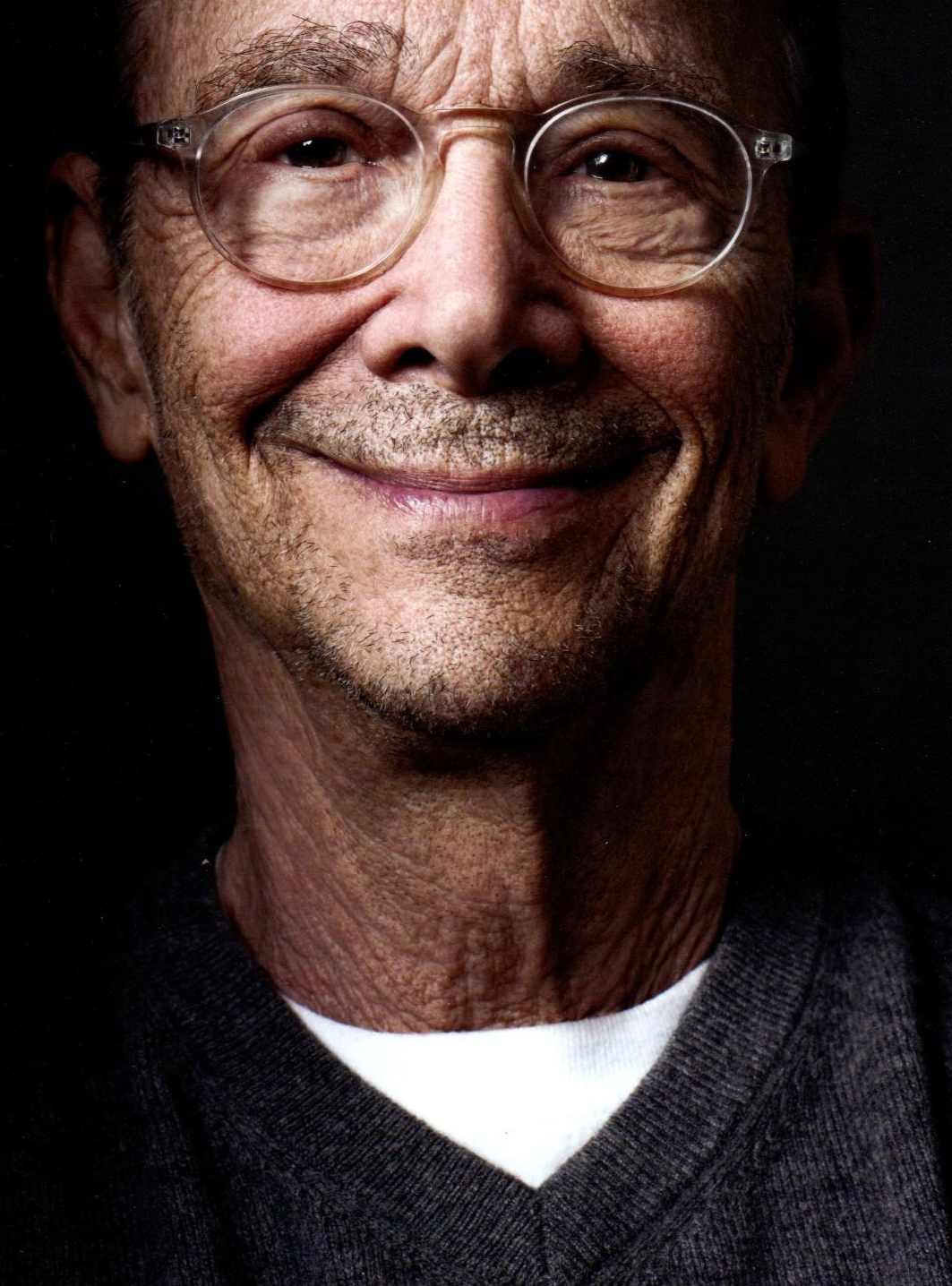
National Yiddish Theatre Folksbiene
At the Museum of Jewish Heritage – A Living Memorial to the Holocaust
Edmond J. Safra Plaza
36 Battery Place, New York, NY 10280
Administration: 212-213-2120
Box Office 212-213-2120 ext. 606